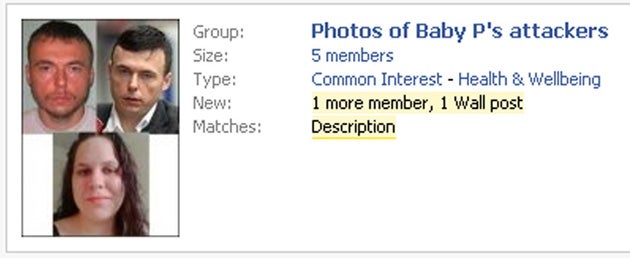Internet hate campaign that made a mockery of the High Court
Robert Verkaik, Law Editor, on the lessons for the legal system

Foremost among the grounds of appeal being sketched out by lawyers representing the killers of Baby Peter will be the claim that prejudicial coverage on the internet denied their clients a fair trial.
At the time of the prosecutions last year, websites were ablaze with abusive speculation concerning the identity and motives of those accused of such a monstrous crime.
In one example, online vigilantes using a social networking site began a campaign calling for violent retribution. A Facebook group was given the name: "Death is too good for Tracey Connelly, torture the bitch that killed Baby P". Another, which also carried the mother's name, demanded "Baby P killers should be hanged Drawn and Quartered".
How could the court be sure the jury hearing the evidence had not been influenced by these highly prejudicial internet messages?
The rules which should have prevented online publication are governed by an outdated piece of legislation enacted at a time when Parliament could not have comprehended what a website might be, never mind know how one might work in the context of the criminal law.
In the case of Baby P, our contempt of court laws have been exposed as being in need of an urgent and major overhaul.
Despite a series of strict court orders banning identification of Baby P's mother and her boyfriend, Steven Barker, the police and the Attorney General were unable to halt the online transgressions of the court orders.
In the same month as Baby Peter's case came to court, a 56-year-old father was found guilty of raping his daughters over a 25-year period. The courts imposed a banning order on naming the man and his daughters. Again the internet operated in deliberate ignorance of the law. Coming so soon after the Baby P order, the media's frustration at being blocked from fully reporting another sensational story while others were flouting the rules was palpable.
These are by no means the first or only examples of the law being found unfit for the purpose of preventing publication on the internet. Celebrities and footballers accused of crimes and misdemeanours often find their identities are widely available to anyone who is prepared to embark on even a cursory search of the postings and message boards of gossip websites.
There then appears to be a double standard at work, where the law is incapable of punishing flagrant breaches of court orders by internet transgressors while imposing draconian sentences on the mainstream media for committing much less serious breaches. The internet was born into a lawless cyberspace and has little respect for the fusty orders of the High Court.
Newspapers and some leading media lawyers believe the rules that restrict publication of the news must catch up with the new media – which is at liberty, often operating from outside the country, to publish with impunity. Others want to move quickly to the US system where there is a more laissez-faire approach to the reporting of criminal investigations and public life.
At the heart of the matter is the jury which has the job of fairly deciding between guilt and innocence. Judges should stop acting like King Canute by trying to curb every excess of the internet and instead trust the jury to be able to maturely distinguish between online gossip and hard evidence adduced during a trial.
Join our commenting forum
Join thought-provoking conversations, follow other Independent readers and see their replies
Comments